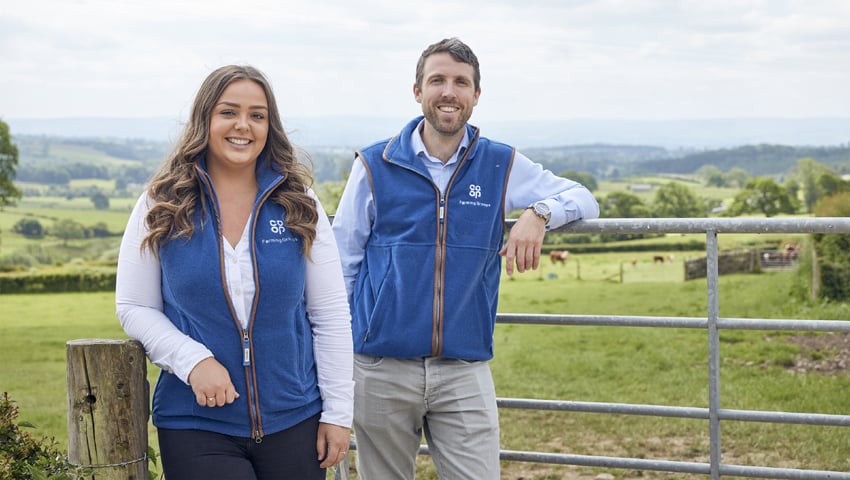Co-op has unveiled plans to support its British farmers to adopt sustainable farming practices to boost sustainability and address future environmental issues.
The convenience retailer’s new ‘Future Farming Fund’ will drive innovation, promote productivity and improve climate resilience with a series of on-farm projects led by members of Co-op’s Beef and Lamb Farming Group.
The projects in the fund, which begin in August, were shaped by feedback from farmers and focus on key sustainable farming methods including soil health, biodiversity and alternative forage crops alongside projects studying genetics and data management.
Joseph Keating, Co-op’s Agriculture Manager, said, “Supporting British agriculture is so important to us, our member owners and customers. We’re committed to helping our farmers on their journey to climate resilience and reducing on-farm emissions through adopting sustainable farming practices. Our new Future Farming Fund has been shaped by what our farmers have told us, and we’re thrilled so many are already engaged with the different projects on offer.”
Co-op was one of the first UK retailers to set an ambitious goal of reaching net zero emissions by 2040, and the new Future Farming Fund is part of the retailer’s wider strategy to reduce its environmental impact and support its suppliers to do the same.
Resources and financial aid for the projects will be provided through the retailer and supplier partner, Dunbia.
Claire Martin, Dunbia Agriculture Account Manager, said, “We are delighted to support Co-op’s latest funding mechanism through their Beef & Lamb Farming Group to drive innovation and accelerate emission reductions on farm. We have received such positive feedback from our suppliers to get involved. It is very rewarding to provide the necessary support to help the Group make improvements that will subsequently improve their beef and lamb production efficiency and the sustainability of their farming business. We look forward to following the Group throughout the project execution and sharing their journey along the way.”
Every farmer in Co-op’s farming group can undertake at least one project whilst learnings will be used to guide others in their move towards environmentally friendly farming methods.
Co-op’s Future Farming Fund includes five on-farm projects:
- Better soils for better forage: A key aspect of the new fund is promoting soil health. The fully funded project, which is open to all farmers in the group, will include in-depth testing to discover more about the nutrients and carbon in the land to help shape the management of the soil. This will enable farmers to support the life forms that live in and around it as well as inform the use of inputs like fertilisers more efficiently.
- Biodiversity: Co-op is also helping farmers to improve nature on their farms by studying insects like bees, butterflies and moths, which are vital for natural habitats. The three-year biodiversity project will use technology to map habitats and record pollinator activity, helping to make detailed action plans for enhancing biodiversity in the future.
- Alternative Crops for Forage: Funding the establishment of multispecies or brassica crops.. It is designed to provide farmers with better access to alternative crops for forage and reduce the reliance on concentrate feed, fertilisers, and soya usage to promote soil health, improve water quality and livestock diets and help farmers improve business viability.
- Genetics and data management projects are also included in the funding plan based on farmer feedback on the areas they needed the most support with. From empowering farmers with the knowledge and tools to enhance the genetics of their livestock, to support on how farmers can manage data and collect more in-depth information on farm performance to help shape business plans and drive profitability.
Image shows Co-op Agriculture Manager Joseph Keating & Co-op Agriculture Specialist Laura Talbot
